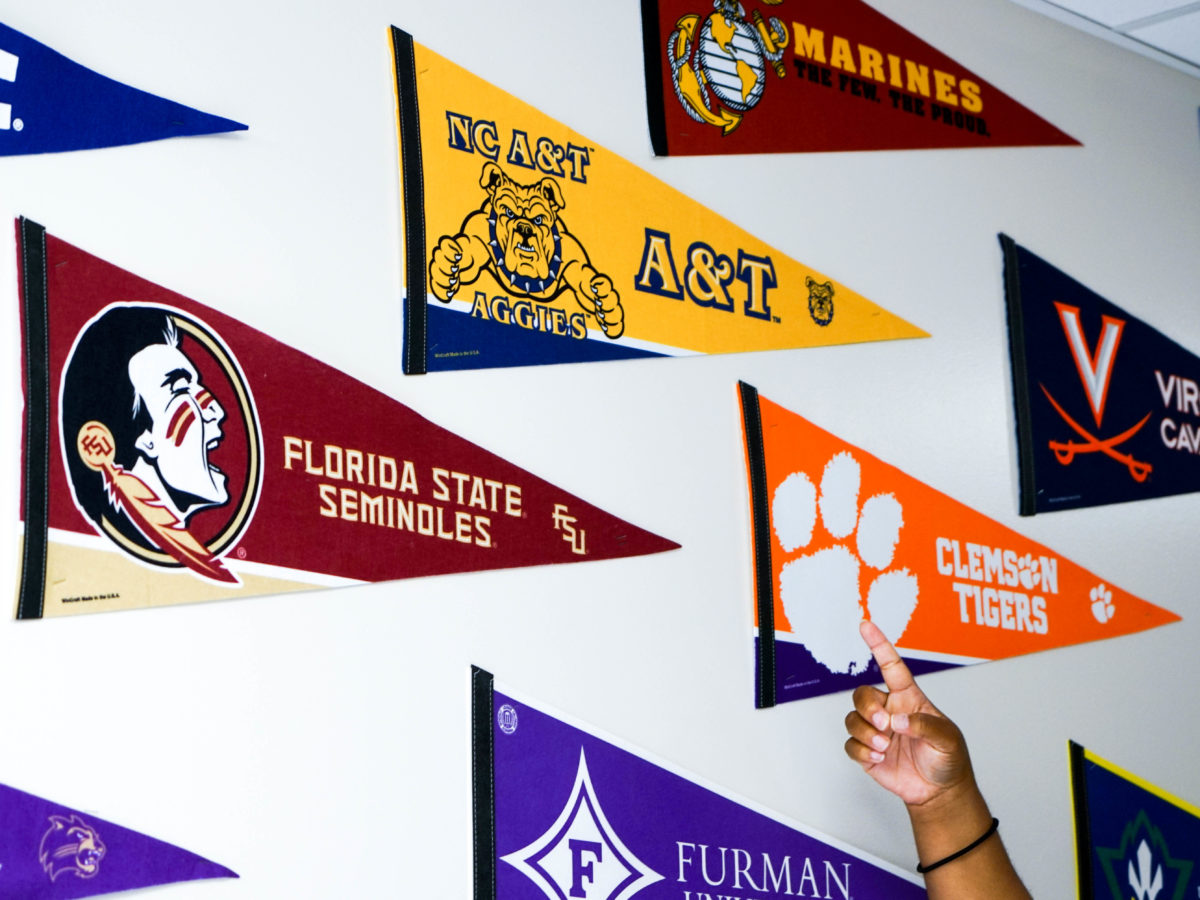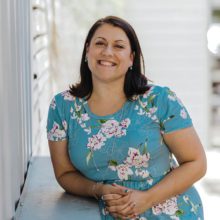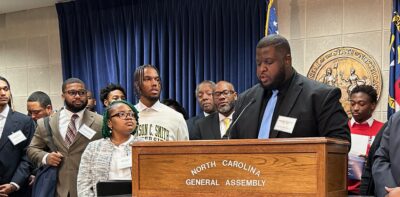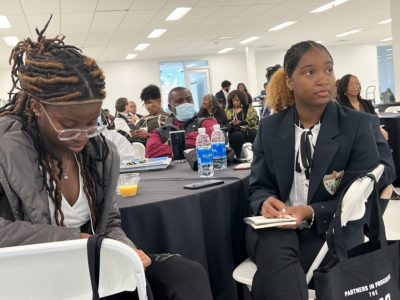
|
|
In celebration of Black History Month and to highlight the state’s historically Black colleges and universities (HBCUs), College Foundation of North Carolina (CFNC) held its third annual virtual N.C. HBCU Showcase last week.
Students and parents heard from speakers from each of North Carolina’s HBCUs. Several themes emerged: family-like environments; strong histories; diversity among colleges and programs; and energy based on pride, desire to help students succeed, and inherited traditions.
Sarita Broadway and Brittany Privott, two CFNC representatives who bring their passion for college access to the CFNC HBCU Committee, hosted the event, which you can watch below.
The goal each year is to showcase the history and diversity among our excellent HBCUs, which were first established in the early 19th century to educate African Americans who were excluded from existing colleges and universities. At one point, there were over 400 HBCUs in the nation.
Now only around 100 remain, with 10 residing in North Carolina. HBCUs remain a vital part of North Carolina’s higher education community. They offer affordable paths to higher education, and they provide diverse and supportive campus communities — characteristics which have shown to improve student outcomes. Below are a few highlights from the showcase.
As the oldest HBCU in the South and the first HBCU in the nation to admit women, Shaw University kicked off the showcase. Like other colleges in the program, Shaw’s representative spoke to some of the benefits of HBCU culture: community, opportunity, social life, and diversity.
Next up was Saint Augustine’s University (SAU), established in 1867. The university offers its approximately 1,000 students degrees in 26 majors. Known for its track program, SAU is down the street from Shaw University and N.C. State University, providing opportunities to connect students and collaborate in the classroom.
Johnson C. Smith University (JCSU) is the third oldest HBCU in North Carolina. Located in Charlotte, the school takes advantage of its close proximity to the second largest financial district in the country to provide opportunities for its students. U.S. News and World Report named JCSU the No. 1 private HBCU in North Carolina in part for its job placement of graduates and programs such as psychology and sports medicine.
Fayetteville State University (FSU) was founded in 1867 as a Teaching College and still has a high number of students enrolled in its education program. FSU is part of the N.C. Promise Program — along with fellow HBCU Elizabeth City State University — which offers reduced tuition for North Carolina students. Given its close proximity to Fort Bragg, FSU has many students who are taking advantage of the GI Bill and Veterans Affairs benefits. FSU is currently competing at the CIAA Basketball Tournament in Maryland, along with many of their N.C. HBCU peers, with their home state supporting them.
Bennett College was founded in 1873 and transitioned to an all-women’s college in 1926. Bennett stands out as one of only two all-women’s HBCUs in the country. Bennett boasts a small campus with individualized attention and a personalized learning experience.
Livingstone College was founded in 1879 in Concord before moving to Salisbury in 1882. Livingston boasts as many female athletes as male athletes and, like many of the HBCU peers in our state, it is home to the Divine Nine Black sororities and fraternities. It is the only HBCU to offer culinary arts and hospitality programs. The school owns a Holiday Inn, which gives hospitality students hands-on experience.
North Carolina A&T is the largest HBCU in the country and is part of the UNC System. It is located in Greensboro and is in the NCAA Division l. You will find a Greensboro Four statue in the student center honoring the four NCA&T students who staged a sit-in at the Woolworth counter. The school’s top three programs are engineering, biology, and nursing. Money Magazine ranked it the most affordable university in North Carolina. It is also the top producer of African American graduates in engineering and agriculture, according to the U.S. Department of Education.
Elizabeth City State University (ECSU) offers a campus focused on family and connections. It ranks as the top HBCU in the nation to help lower-income students achieve economic success. U.S. New and World Report ranked it the fourth best public school in the South. It is also known for its aviation program — the only 4-year program of its kind in North Carolina. ECSU offers a strong career development program, which includes four major career fairs throughout the year.
Winston-Salem State University (WSSU) was founded in 1892 and is also part of the UNC System. This school brought the topic of cuisine to the forefront of the conversation as yet another important aspect to life on an HBCU campus and African American culture. WSSU offers 40 majors and minors, with nursing, education, and business administration among the most popular. It is also one of a select few universities that offers a motor sports management program.
NC Central University (NCCU) was founded in 1910 by Dr. James E. Shepard, a graduate of Shaw University. At the time, he was one of the wealthiest African American men in the U.S. Located in Durham, NCCU currently has 146 degree concentrations and 8,000 students. Students are required to complete community service hours and, on average, have 3,436 total hours of community engagement completed in one year, staying true to their motto of, “Truth and Service.”
North Carolina’s HBCUs are an important part of our state’s educational tradition. Each one offers students a campus focused on community and connection and some of the most sought-after programs in the South. CFNC plans to continue to host this program yearly. To learn more about the state’s HBCUs, visit our website and our YouTube playlist.





